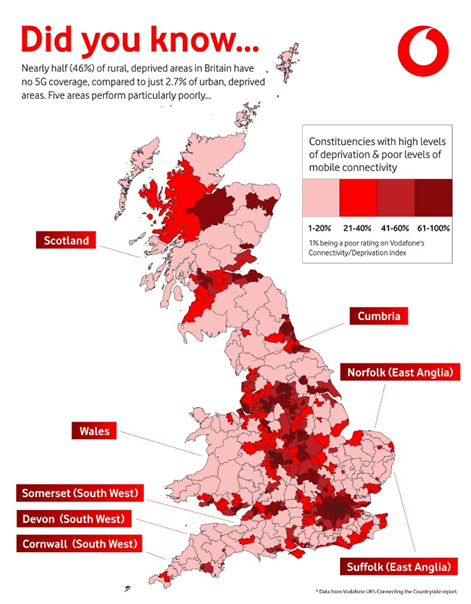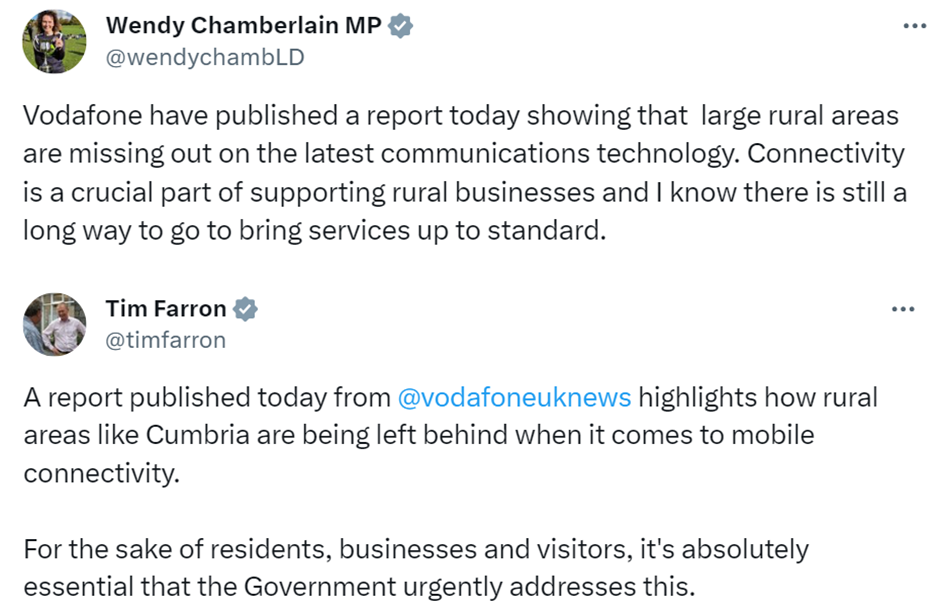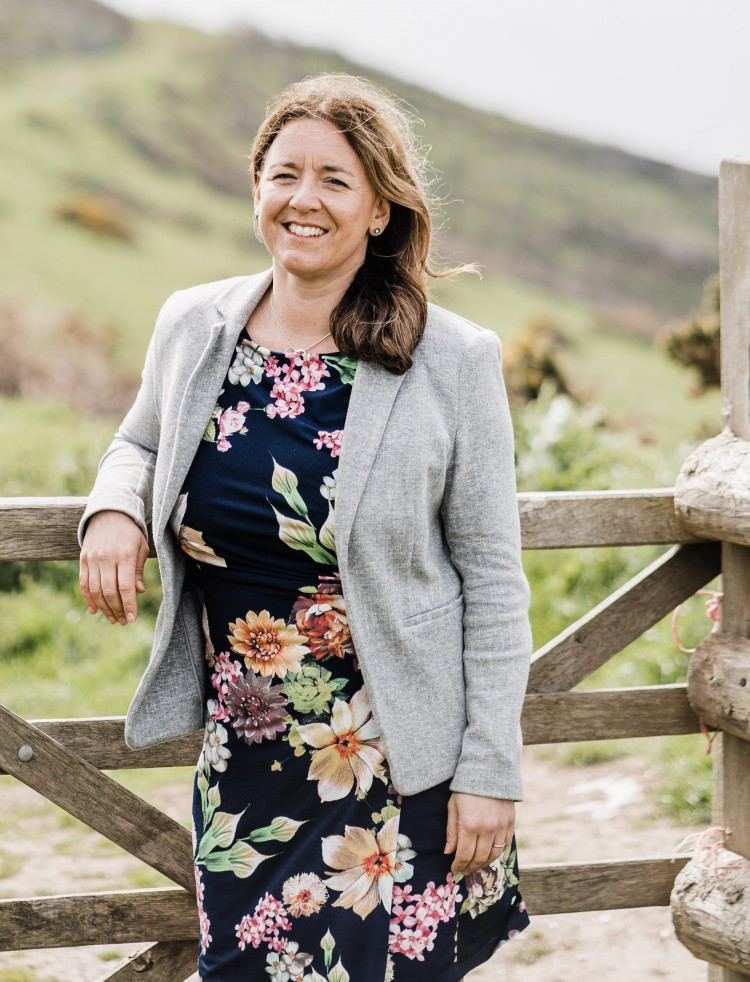T: 01822 851370 E: [email protected]
Visit RSN Survey about life in rural England to find out more.
Digital divide between rural and urban area is growing

A new study has been published by the mobile operator, Vodaphone UK, which reveals the gap between urban and rural areas is growing when it comes to reliable connectivity.
The report, ‘Connecting the Countryside’ was commissioned by Vodafone UK with analysis carried out by WPI Economics. It found nearly half (46%) of rural deprived areas are classed as 5G not spots, whereas the same can only be said for 2.7% of urban, deprived communities.
The study also identified five areas of Britain as performing particularly poorly when it comes to a lack of connectivity and high levels of deprivation – Scotland, Wales, East Anglia, Cumbria and the South-West.
 |
The report found that 838,000 people living in deprived rural areas are losing out on the benefits that 5G could provide, including better access to healthcare and more educational opportunities. It goes onto say that “improved connectivity, through investment in digital infrastructure, will help these communities not only today, but also tomorrow as those living in not spots simply won’t learn the digital skills they need for the future.”
Many rural MPs took to Twitter following the publication of the report to highlight the situation in their constituency:
 |
Meanwhile, the government’s Rural Connectivity Champion, Simon Fell (Con, Barrow and Furness) said: “New research published today lays bare the challenge we face to bring connectivity to our most deprived rural communities to match the rest of the country, and to ensure that millions of people are not left out from the future innovations that 5G can provide. We need to deliver ‘nationwide coverage of standalone 5G to all populated areas by 2030, ensuring that we can bring its full benefits to villages and rural communities well beyond cities and towns’ as set out in the Government’s Wireless Infrastructure Strategy. Some of these innovations are already a reality, and simply need connectivity as the final piece of the puzzle.”
 |
RSN Chief Executive, Kerry Booth, has welcomed the report and Vodaphone’s commitment to improving the service but says it is all taking too long:
|
You can read the report in full here.



